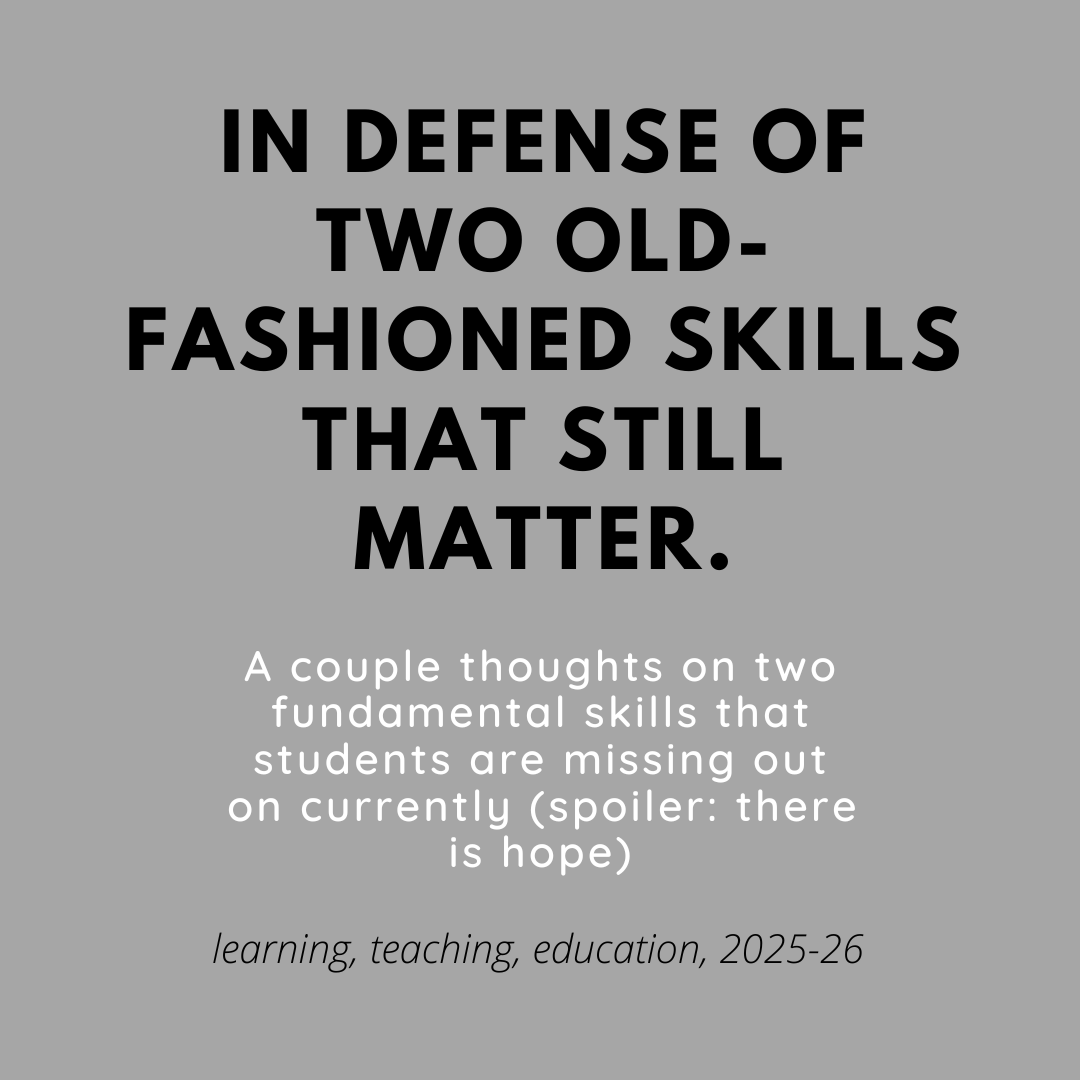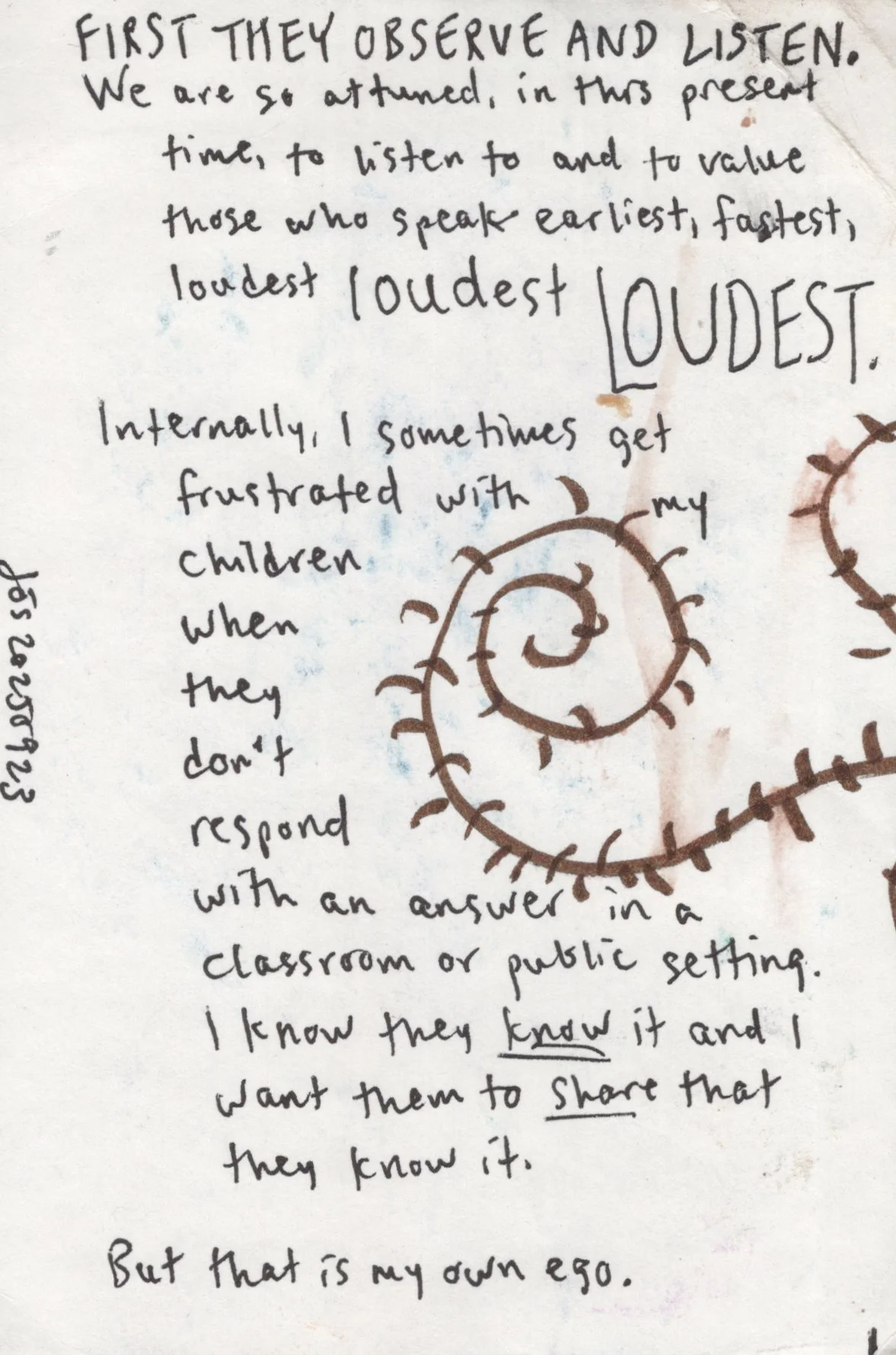A Wednesday : mimes, dragons, reductio ad absurdum, Latin, cannibalism.
Things we learned, discussed, read, did, and argued about
Maths
I worked with a 5-year old on adding single digit numbers; a skill he has mastered so well that he can even do so by using his fingers.
More importantly, I’d like to think I helped instill in him a life-long love for the number zero, and the philosophical and functional role it plays in mathematics. Inextricably, he particularly enjoyed problems involving this number, such as:
5 + 0 = ?
I’d like to think it’s because those ones are extra challenging.
The Arts : Performance
An 11- and 14-year working out the kinks and subtleties of miming. Mime in an elevator, mime in a box, mime on a tightrope, et cetera. Mesmerizing. Mimes are like the bubbles of performance art: so simple, yet so detailed and nuanced in the way each movement is both same and different.
Literature
Saint George And The Dragon: A Golden Legend adapted from Edmund Spenser’s Faerie Queen retold by Margaret Hodges, illustrated by Trina Schart Hyman (1984)
I loved this one when I was a kid; primarily for its intricate, Medieval tapestry-like illustrations and ferocious depictions of valor in battle. The words are wordy and descriptive.
Music
In the Hall of the Mountain King by Edvard Grieg (1875) while we slashed illustrations of fierce dragons across photo paper.
Logic & Rhetoric - Overview of fallacious thinking:
ad hoc reasoning (“for this” reasoning)
We spoke earlier of the phrase ad hoc and how it’s often used in the context of a committee - a committee formed for a specific event or happening. A group of people is pulled together for a particular cause. Same thing for arguments: when ad hoc reasoning is used poorly or inaccurately, it’s usually because the (fallacious) arguer keeps adding something into the mix. It can be both subtle and overwhelming, because a master abuser of ad hoc reasoning is great at continually adding new pieces into the debate that throw out anything or any evidence that disproves their belief.
For example (and I’ll put the ad hoc argument in boldface), let’s say I believe in unicorns. I might say:
Well, unicorns are real, and it’s ridiculous that you think they’re mythical creatures. They really do exist. The reason you can’t see them is because their horns can sense when they’re being observed by humans, and then they make themselves invisible. Oh, you’re wondering why there aren’t any unicorn hoof prints anywhere around where they live? It’s because they create a type of dust that drops from their hooves and covers their tracks when they’re being followed.
Ad hoc reasoning is really a wonderful narrative technique and an absolutely fantastic way to carry on entertaining dialogue with many kids…and monumentally frustrating when someone is fallaciously using it under the guise of a serious argument.
reductio ad absurdum (“reduction to the absurd”)
This is another wonderful diversionary tactic if you lack much logic or evidence to support your assertion. What’s great about this is that it’s so preposterous and ludicrous that it seems inconceivable it could make sense…except that there’s a bizarre sort of logic in it that’s maddening and head-scratching and laughable, but also difficult to shut down.
The trick with reductio ad absurdum arguments that you have to start with a true premise, but then streeeeeetch it to the point of…absurdity. I might say:
“So, you’re telling me you don’t believe reptilian aliens are using mind control to dictate policy to half the United States Congress? You’re saying you’re skeptical about this because you haven’t seen them with your own eyes? Well…if you don’t believe in mind-controlling reptiles running the country because you haven’t seen them, then you can’t believe in…The Great Barrier Reef, because I know for a fact you haven’t seen that with your own eyes.
Extreme example, but that’s how it works - and along the way, it casually infers that personal eyewitness evidence is the only worthwhile kind.
Greek & Latin
Today was a review.
Prae - before, in front of
Note: if you think of the English equivalent of prae as being simply pre, it’s a little easier to keep straight.
Latin phrases I think are beautiful, important, and relevant
1. a posteriori (from the latter): based on experience
2. a priori (from the earlier): independent of experience
3. ad hoc (for this): said of something created or formed for a special case
4. ad infinitum (to infinity): something that keeps going forever
5. alea jacta est (the die is cast): said when a plot is set into motion
6. ars longa, vita brevis (art is long, life is short)
7. casus belli: (cause of war): where the blame lies
8. caveat emptor (let the buyer beware): a reference to the principle that a customer is responsible for making sure that a product is in good working order
9. compos mentis (of healthy mind): sane
10. ex cathedra (from the chair): with the full authority of office (often used in reference to the Catholic pope’s infallibility, but also employed in other contexts)
Quotes
“If you do that again, I will eat you.”
- an 11-year old to his older sister, as they engage in disagreement for the first time ever practicing Hamilton songs on ukulele and guitar
Selected books, ages 2 & 5
The Moose Belongs To Me by Oliver Jeffers
The Heart and the Bottle by Oliver Jeffers
A Ball for Daisy by Chris Raschka
Blackout by John Rocco
Gaming
The five-year old learned the ancient game of Mancala from his elder brother, and in a short amount of time has been regularly defeating all comers, including his older siblings and parents, which has led to gritted teeth, terse post-match handshakes, befuddled self-confidence, and an attempt to hang onto basic protocols of sportsmanship.
It’s even worse when you’re playing someone one-ninth your age and when it’s your turn, they share helpful tactical advice with you…that is usually spot-on strategy. Extra humiliating.
So yeah, 45-year olds still gotta work on good sportspeopleship too sometimes.
Play
An array of wood blocks with various designs, paintings, and history snippets are stacked and arranged lovingly by multiple hands into some sort of Seuss-ian, Escher-ish compound.










